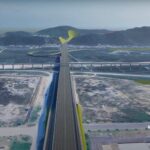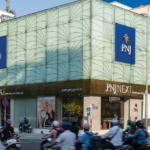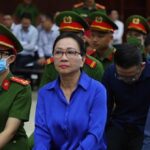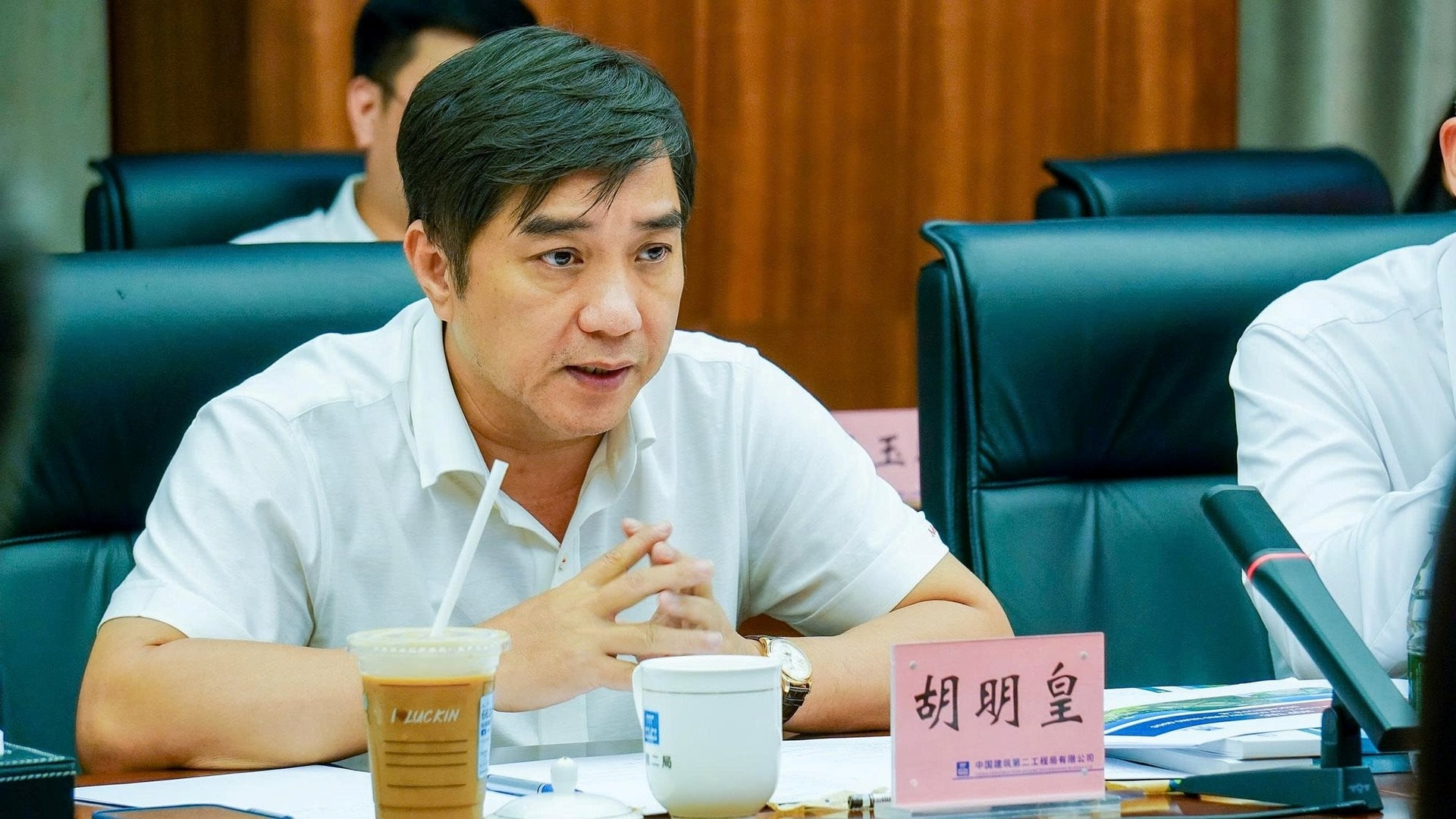
Mr. Ho Minh Hoang, Chairman of the Board of Directors of Deo Ca Group
According to information from the Deo Ca Group, on August 7, in Beijing, China, a working delegation from the Deo Ca Group, led by Mr. Ho Minh Hoang, Chairman of the Group, had a discussion on concretizing the strategic cooperation with Bureau 2 – China Construction Group (Bureau 2).
Speaking at the meeting, Mr. Ho Minh Hoang acknowledged the first cooperation results through organizing an internship program for Deo Ca Group’s engineers and workers on TBM tunneling technology at the Thuan Quyen project site, which was just completed in July.
The Chairman of Deo Ca Group also highly appreciated the cooperation efforts from Bureau 2 to meet the training and technology transfer needs of Deo Ca in the context that the Vietnamese government is preparing to implement key infrastructure projects such as the North-South high-speed railway and metro lines in Hanoi and Ho Chi Minh City.
Mr. Hoang revealed that in the past, many Chinese enterprises have come to Vietnam to propose cooperation with the Deo Ca Group, but most of them do not focus on the aspect of human resource training and technology transfer.
“Bureau 2 is very straightforward and proactive in promoting cooperation in training human resources. This is a decisive strategy for the success of the Deo Ca Group as well as the cooperation between the two sides,” shared Mr. Ho Minh Hoang, adding that the leaders of the Vietnamese Party and State orient the localization of construction technology for transportation infrastructure projects.
The two sides agreed that in the coming time, there is a huge room for development of Vietnam’s transportation infrastructure, so the Deo Ca Group and Bureau 2 need to continue to cooperate closely, towards improving the quality of human resources, applying and transferring TBM technology.
Immediately after the issuance of Resolution 68 of the Politburo on private economic development, along with the policy of investing in modern railway projects, many Vietnamese enterprises have proposed investment plans. With a growth strategy focused on transportation infrastructure, the Deo Ca Group aims to not rely on foreign machinery and experts. Instead, the enterprise prioritizes investing in recruiting and improving the quality of human resources through theoretical training courses in the country and overseas training programs.
Mr. Sun Shunli, Deputy General Director of Bureau 2, expressed his expectation to cooperate with large infrastructure enterprises in Vietnam, especially the Deo Ca Group. He also emphasized that both the Deo Ca Group and Bureau 2 have an important common point of being leading units in their respective countries in implementing key projects.
“We admire the spirit of learning new techniques and technologies of the Deo Ca Group, and we fully support the plan to establish a joint working group to concretize the tasks when cooperating,” shared Mr. Sun Shunli.
In the period of 2025-2026, the Deo Ca Group is researching and implementing a series of key tunnel projects, including Dong Dang – Tra Linh Expressway (phase 2), Cao Bang – Bac Kan Expressway, Quy Nhon – Pleiku Expressway, Cat Lai Tunnel, Hong River scenic avenue, North-South high-speed railway, and Hai Phong – Hanoi – Lao Cai high-speed railway.
With a total workload of up to 245 km of tunnels, worth $10 billion, being studied at the projects, the Deo Ca Group proposes that Bureau 2 coordinate the simultaneous implementation of NATM and TBM construction technologies for some key projects. This solution helps to speed up the progress, optimize TBM depreciation, optimize costs, and improve construction quality.
The Deo Ca Group orients cooperation with Bureau 2 in the form of joint construction bidding (consortium/subcontracting) for high-speed railway, urban railway, and expressway projects combined with human resource training. In addition, Bureau 2 will provide, buy and lease specialized construction equipment to the Deo Ca Group and its partners, including tunnel drilling equipment (NATM, TBM), specialized rail laying equipment, and super-long beam lifting cranes.
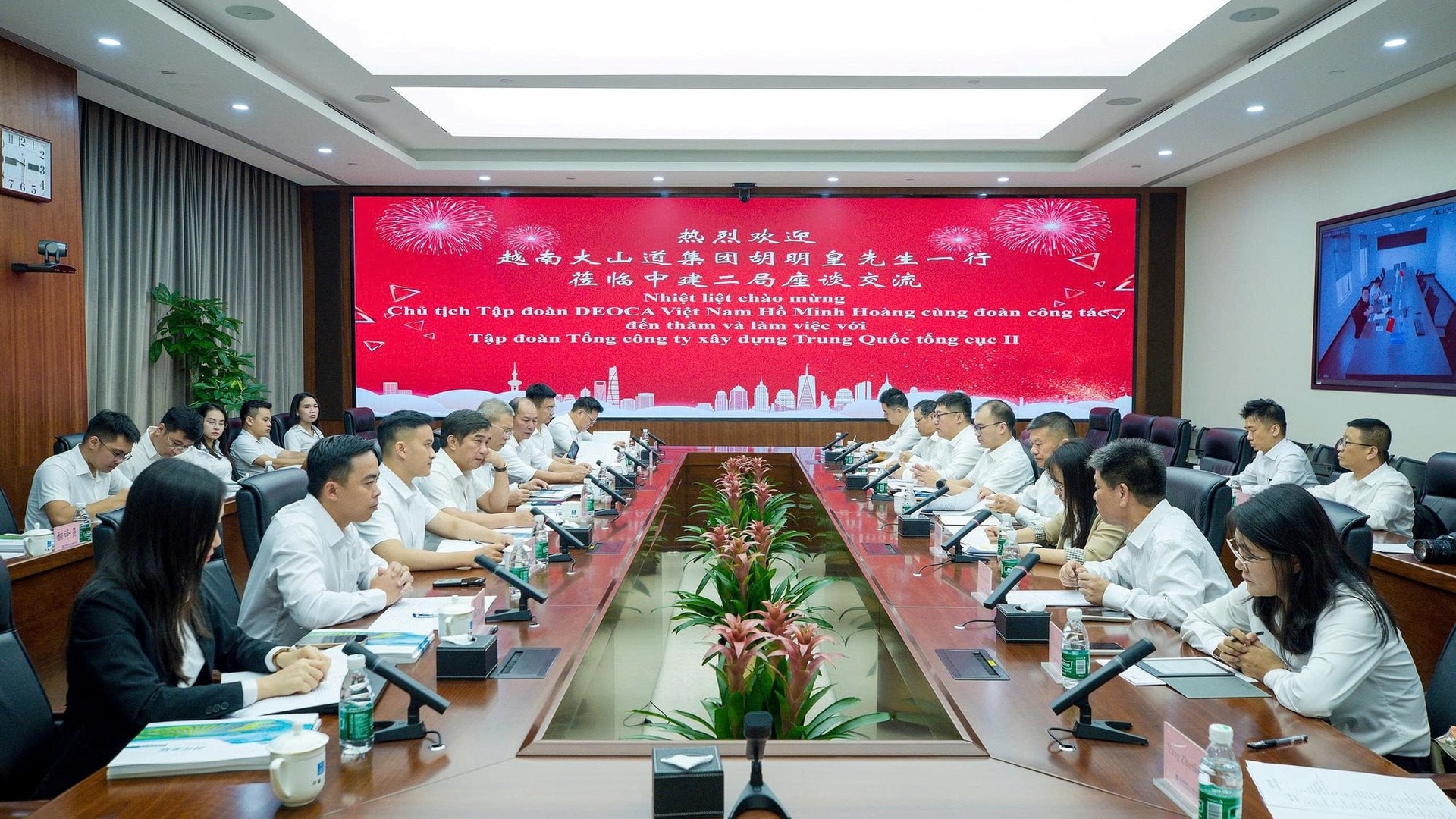
In addition, Bureau 2 will invest in building factories and transfer technology to produce concrete components and construction materials for railways in Vietnam, including precast concrete beams, slabs, soundproof walls, rail pads, columns, prefabricated components for overpasses, stations, foundation systems, high-strength concrete, construction steel, noise and vibration prevention materials. Cooperate in design and construction to come up with solutions combining NATM and TBM methods to construct railway tunnel projects.
Chairman Ho Minh Hoang affirmed that Bureau 2 is a Chinese unit that the Deo Ca Group has cooperated most closely with so far, although it has met and promoted exchanges with many enterprises in the country. To cooperate successfully and bring practical benefits, the two sides need to establish a clear roadmap and build a suitable human resource strategy.
Emphasizing both advantages and challenges when the partner is a state-owned enterprise, Mr. Ho Minh Hoang affirmed that the Deo Ca Group and Bureau 2 must frankly establish a strategic cooperative relationship through specific actions in the upcoming projects in Vietnam.
Concluding the working session, Chairman Ho Minh Hoang proposed that Bureau 2 send experts to Vietnam to impart in-depth knowledge about Bureau 2’s construction technology to Deo Ca’s officials, engineers, and workers. The theoretical training programs are expected to be held in Vietnam. Meanwhile, the practical programs will be implemented alternately at projects in China and Vietnam. In the spirit of concentration and urgency, the construction sites of the Deo Ca Group will play the role of a “training ground” for the practical training of officials, engineers, and workers.
A String of Delivery Companies Face Penalties
The National Competition Commission has taken action against four postal delivery companies for providing misleading information to customers.
The Ultimate Guide to the Unprecedented Infrastructure Boom in Vietnam: How Da Nang’s Land is Riding the “Big Wave”
Danang, Vietnam’s most liveable city, is undergoing a significant infrastructure revolution. A series of billion-dollar projects are transforming the connectivity landscape and elevating the value of real estate, particularly in the city’s southeastern area. This region, encompassing the Hoa Xuan and Ngu Hanh Son districts, is witnessing a remarkable transformation as it extends towards the former Quang Nam province.


























